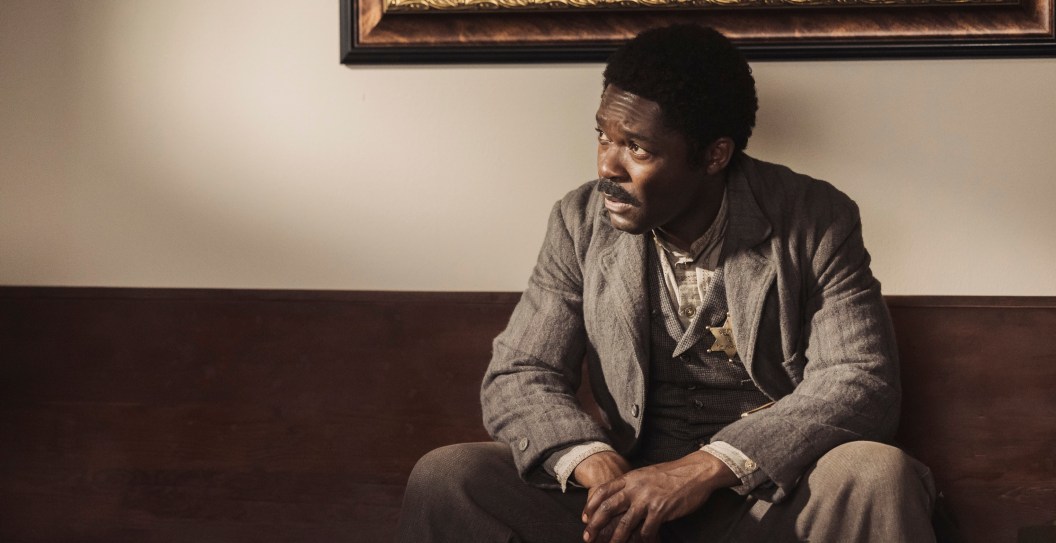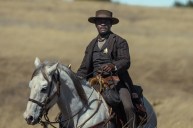We're three episodes into "Lawmen: Bass Reeves," the latest series from executive producer and "Yellowstone" creator Taylor Sheridan. So far, we've seen David Oyelowo's titular frontier hero charge into battle in the Civil War, escape slavery and flee to Indian Territory, reunite with his wife Jennie and become the first Black Deputy U.S. Marshal west of the Mississippi. It's an astonishing story, but is it all true? Bass Reeves was a real man, to be sure. But did his rise to Old West legend play out as "Lawmen: Bass Reeves" tells it?
The series has covered a lot of ground so far, and there are still five more episodes in the season. How closely does the show hew to the facts? To find out, we dug into the biggest plot points of Episodes 1 through 3 and compared them to the historical record — or what historians think the record ought to show. Many details about Reeves' life and career remain hazy, but there are a few stone-cold truths to hang your hat on, like the fact that the unsung hero of the series, Bass' wife Jennie, is based on a real person. (We can all breathe easy now!) Below, we separate fact from fiction.
Did Bass Reeves Really Fight in the Civil War?
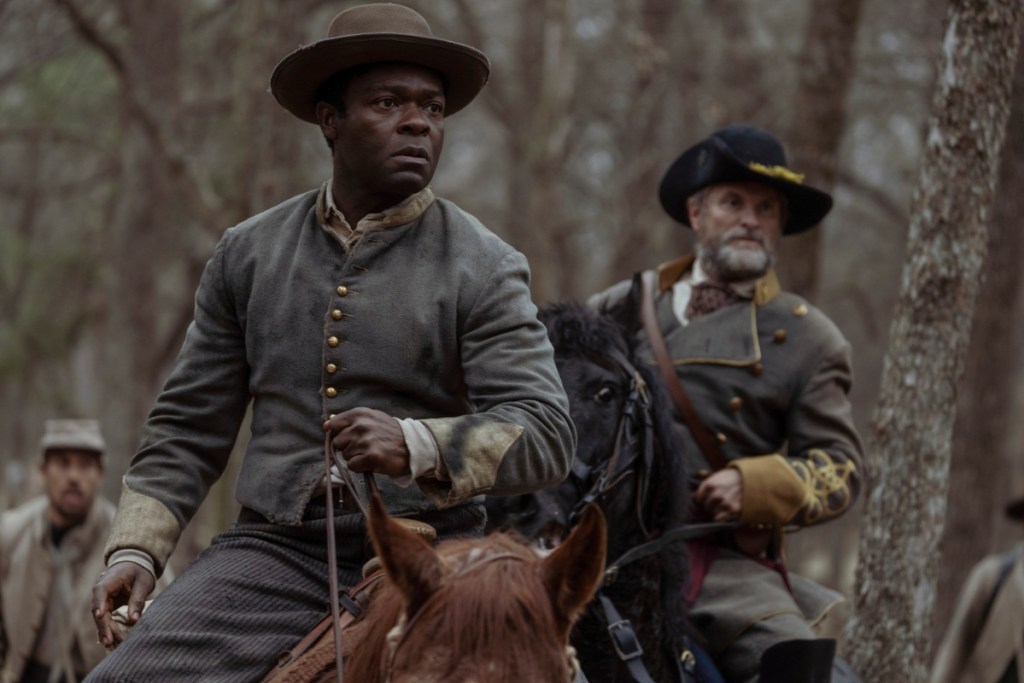
Emerson Miller/Paramount+
While it's true that Bass Reeves was born into slavery and that his master was a Confederate Army Colonel, it's unclear whether he really saw conflict in the Civil War, as seen in Episode 1. Reeves was born in 1838 on William S. Reeves' Arkansas plantation. The Reeves family relocated to Texas at some point, so Bass Reeves would have grown up in the Lone Star State.
Bass Reeves claimed to have served under William S. Reeves' son, Col. George Reeves (played by Shea Whigham in the show), in the battles of Pea Ridge and Missionary Ridge (1862-63) — not as a soldier, but as George Reeves' page or scout. Historians believe that, if he served in some capacity, it would've been at Pea Ridge. It's most likely that he escaped slavery in 1862 following that battle.
Did the Card Game Really Happen?
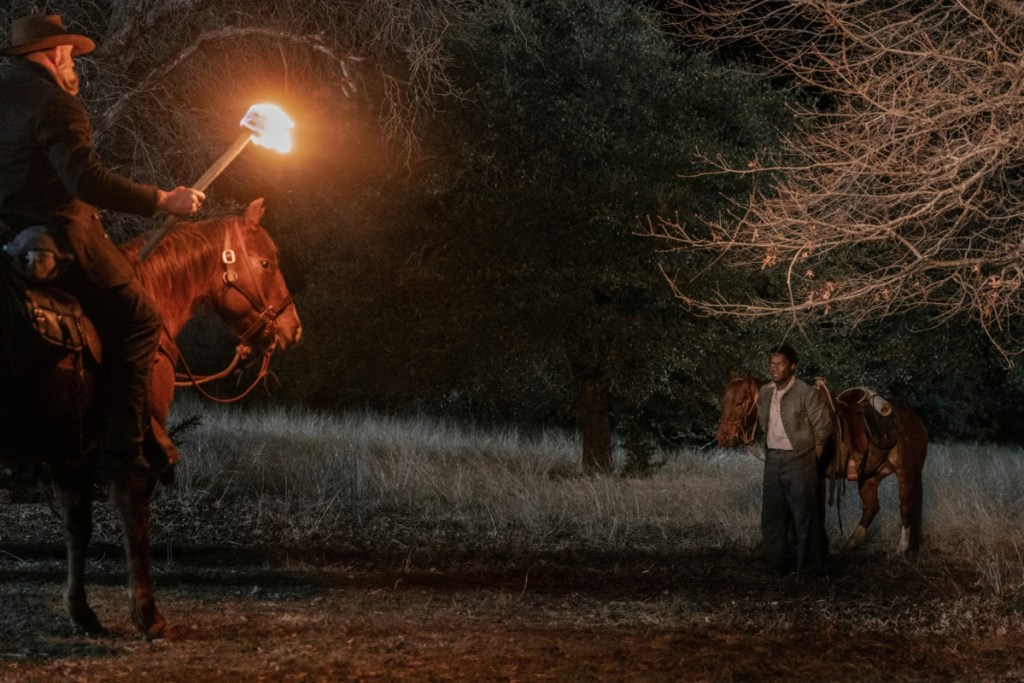
Emerson Miller/Paramount+
Bass Reeves' family members claimed that he escaped slavery between 1861 and 1862 following a card game dispute with Col. George Reeves, as depicted in the show. It's unclear what that argument was about — let alone whether it included a gamble for Bass Reeves' freedom.
Did He Really Live Among Native Americans?
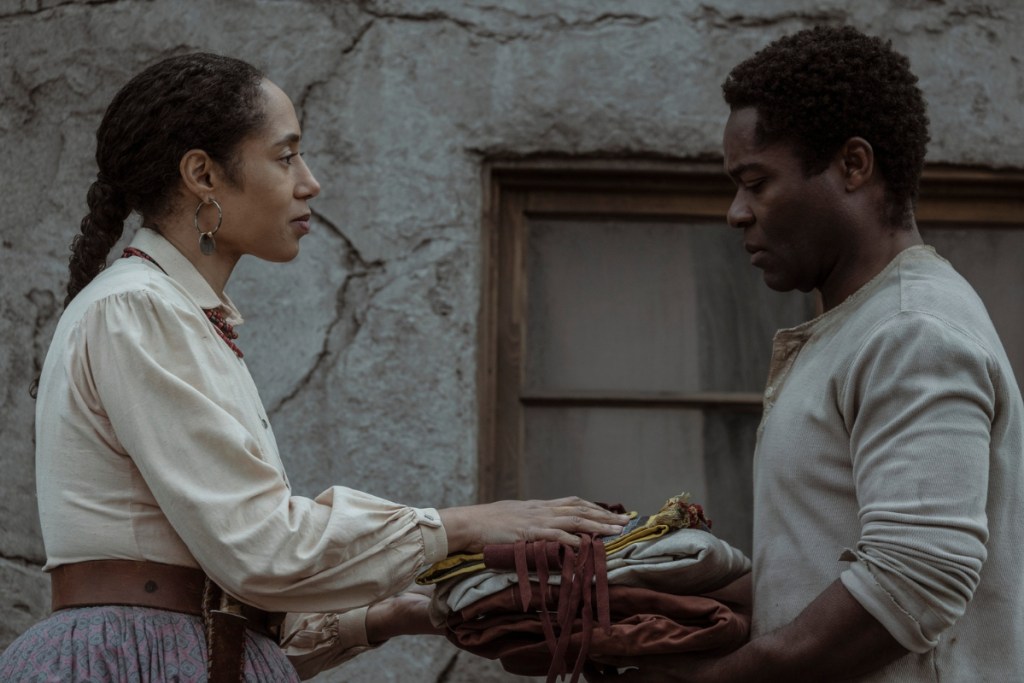
Emerson Miller/Paramount+
Bass Reeves did flee to Indian Territory (present-day Kansas and Oklahoma) upon his escape. He learned the languages and customs of the Seminole, Choctaw and Creek tribes. After the war's end in 1865, he worked as a guide for U.S. officials traveling through Native lands. He later returned to Arkansas and bought farmland.
Was Jennie Reeves a Real Person?
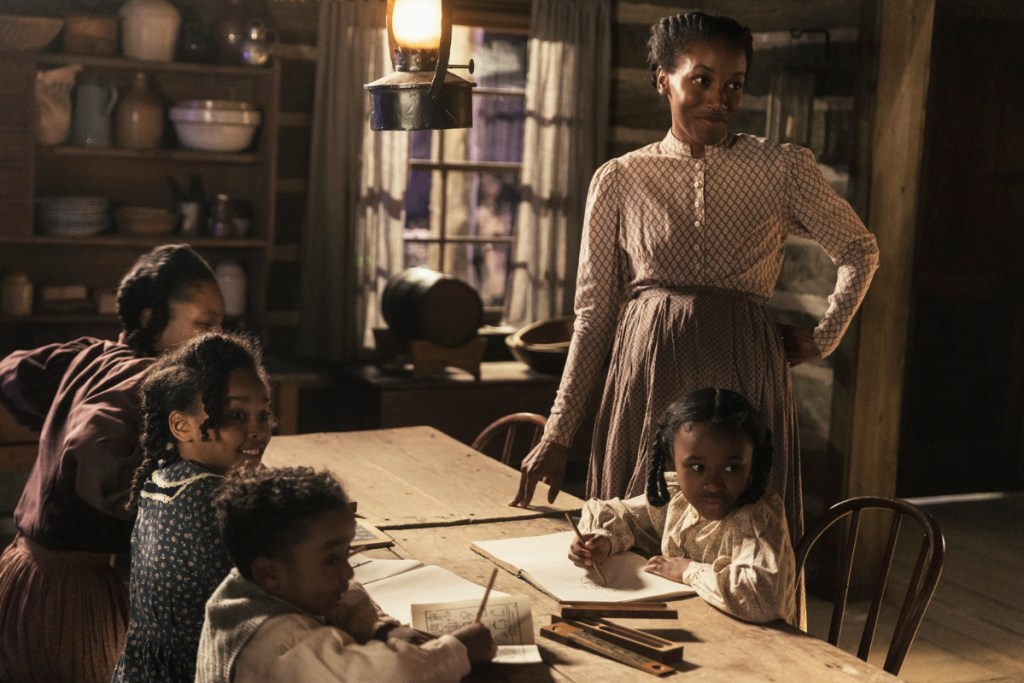
Emerson Miller/Paramount+
The character of Jennie Reeves, played by Lauren E. Banks, is based on Reeves' wife, Nellie Jennie. The pair were married in 1864, after Reeves had escaped slavery, and had either 10 or 11 children together. They remained married for 30 years, until Jennie's death in 1896.
Was Sherrill Lynn a Real Person? How About Billy Crow?
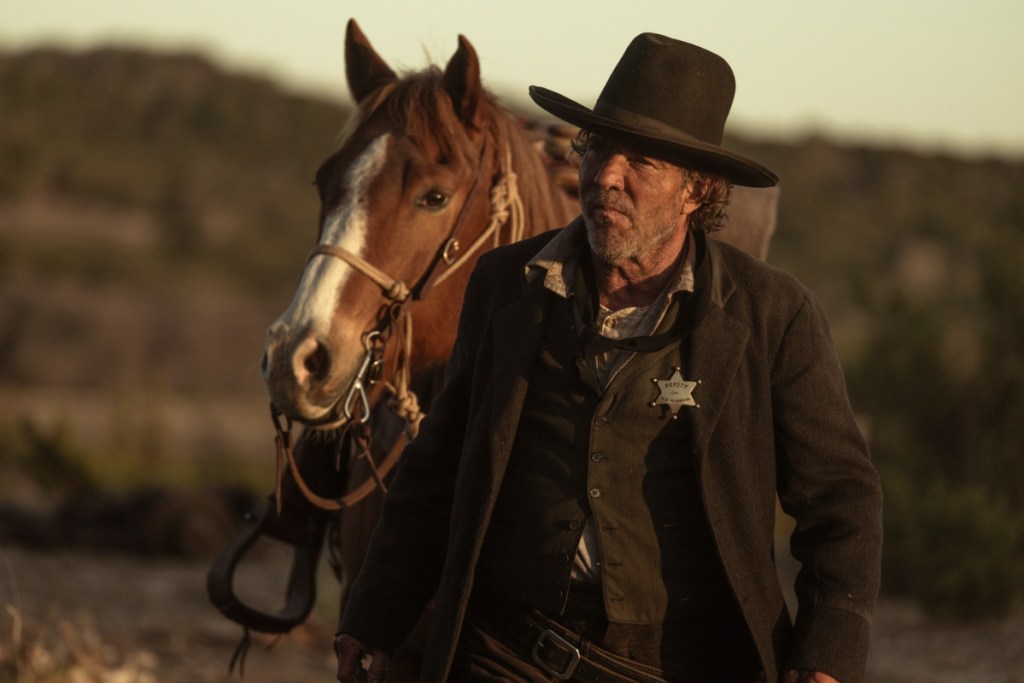
Emerson Miller/Paramount+
Dennis Quaid's Deputy U.S. Marshal Sherrill Lynn is completely fictional, but Donald Sutherland's Judge Parker is a real-life figure.
Parker, known as the "Hanging Judge" for his harsh sentences, was appointed a federal judge in Indian Territory by President Ulysses S. Grant in 1875. Despite his less-than-friendly moniker, there is evidence Parker was committed to some level of criminal justice reform and advocacy for the rights of the Indian nations.
Upon learning that Reeves spoke several Native languages and knew the area well, Parker commissioned him as the first Black Deputy U.S. Marshal west of the Mississippi, in the western district of Arkansas, in 1875.
As for the other characters introduced in "Lawmen: Bass Reeves" Episode 3, Forrest Goodluck's Billy Crow is not based on a historical figure. Nor is Garrett Hedlund's Garret Montgomery.
